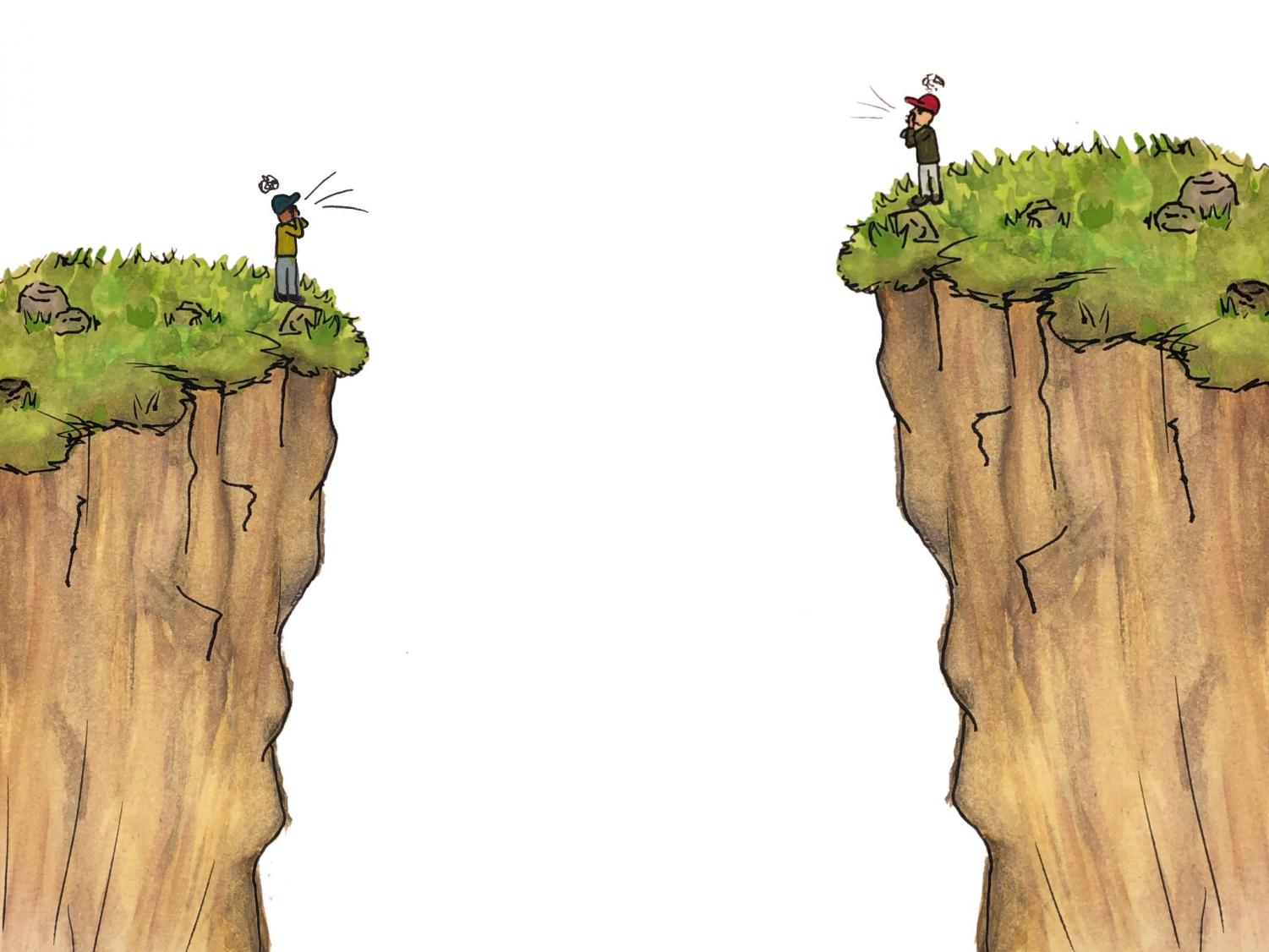
My name is Abigail Gallen, and I am a sophomore at North Allegheny. One of my biggest passions is politics/activism, and most of my stories are politically...


When it comes to politics and tense topics, it is essential that we learn to respect each other.
May 1, 2019
We don’t know how to talk to each other anymore. It’s as if the opposing arguments are standing on opposite cliffs, with an enormous valley separating the two. All we can do is yell; and even then, we can’t hear each other.
Democrat versus Republican. Liberal versus conservative, and everywhere in between. In recent years, the gap between political parties and opinions has continued to grow bigger and bigger. There are serious issues in the United States of America that need to be dealt with, but we can’t even seem to find a middle ground. It all comes down to respect.
We need to respect our differences. Discrimination and prejudice have no place in civil conversation, because all races, ethnicities, sexualities, and other marginalized groups must be involved to reach a decent compromise. America is supposed to be a place of acceptance; if some are excluded solely because of the color of their skin or the gender in which they identify, then the conversation does not count. When it comes to making decisions for the good of the American people, we must remember all American people.
Opposing opinions must be respected as well. Whether it be in Congress or in high school, we need to understand that not everyone is going to have the same point of view. It is essential that every person has the opportunity to speak their mind, without fear of being shamed for doing so. It is okay to disagree; it’s actually quite important that we disagree with each other. Perspective allows people to view an issue in a different way than they first thought.
However, there are certain statements that cannot be considered “opinion.” This includes hateful statements having to do with the race, gender identity, sexuality, religion, and ethnicity of another person. As soon as one person makes a racist, sexist, etc comment, the conversation is no longer civil. It is not an opinion to oppress another person/group of people. It is hatred.
Often, having a political conversation feels unsafe. We use cruel words, call each other horrible names (libtard, etc), and bully each other both in person but especially online. Creating and/or supporting rhetoric online that makes fun of different political parties or points of view is largely to blame for the enormous gap between conservatives and liberals.
Traits of a political figure such as their sexuality, gender identity, race, or appearance should never be used in an argument. For example: calling President Donald Trump a “cheeto” is counter-productive. How is Trump’s appearance relevant to political issues? The same goes for Hillary Clinton and all authorities in either party. If the best argument you can come up with is that a politician is “ugly,” then the conversation is no longer civil, respectful, or educated. That being said, citizens are not the only people that need to learn this lesson. There are some pretty high up figures that need to learn this too.
We also need to respect our levels of education. Having a conversation about politics is not about winning; it is about coming to a consensus. The only way to find a middle ground is if both/all sides back up their points with knowledgeable statements. Before entering a conversation, be educated about what you care about. Spreading false information contributes to false rhetoric, which pulls us even farther from each other.
But to truly lessen the gap, we need to respect the difference between politics and humanity. Politics has to do with decisions and policies being made on behalf of the American people. Humanity, on the other hand, has to do with the way we treat fellow human beings. When people discuss things like feminism, LGBTQ+ rights, the treatment of immigrants at the southern border, etc, they are not discussing politics, though it is often labeled as such. Too often, politics and humanity are confused in conversation, which almost always results disrespectfully towards minority groups that activists and feminists work to bring justice for.
Having civil conversations is the remedy America needs to renew a sense of compromise. Issues hang in the air, and our lack of civility prevents us from dealing with them. It is essential that we raise the next generations and revise our current ways so that we can be people that can disagree with each other, but still respect each other.
The original version of this article can be found in Affinity Magazine.

My name is Abigail Gallen, and I am a sophomore at North Allegheny. One of my biggest passions is politics/activism, and most of my stories are politically...